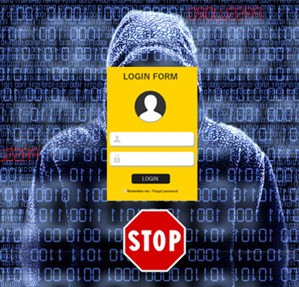American Consumer Credit Counseling explains the different types of spoofing and how to avoid it
Boston, MA – May 1, 2019

“Consumers are at risk of falling victim to spoofing on several different types of communication, such us phone, email, and websites,” said Steve Trumble, President, and CEO of American Consumer Credit Counseling. “We need to be very careful who we give out our personal information to and what we click on our computers. Hackers that are successful in spoofing can gain access to login information, social security numbers and more.”
A CAIDA study found that between March 1, 2015, and February 28, 2017, there were almost 30,000 spoofing attacks each day, and 21 million attacked on 6.3 million unique IP addresses. The study also found that U.S. IP addresses are the biggest target with between 25 and 29 percent being responsible for spoofing attacks, followed by China where 10 percent of sites experienced spoofing attacks.
Spoofing can come in many different forms including:
- Email – This occurs when the hacker uses email to trick the recipient into believing it is from a trusted source. These emails usually contain malicious links, attachments or are used as phishing tools to get consumers to give personal information.
- Caller ID – This occurs when a call from a hacker displays as a known and trusted number on the caller ID.
- Website – These types of fraudulent websites install viruses on consumer’s computers to obtain personal information.
- Legal spoofing – Although most spoofing is illegal some types aren’t. Legal spoofing is when a business or doctor calls a customer or patient from their personal phone, and the business or toll-free number is displayed on the caller ID, so the personal numbers are left unknown.
ACCC explains how consumers can protect themselves from spoofing attacks.
- Double check – Even though the name is familiar, it is important to double check the sender addresses to make sure it matches.
- Don’t reply – Never reply to emails that ask for login information, account details or especially social security numbers.
- Firewalls – Set up firewalls to block unknown and false IP addresses.
- Don’t click – Never click on suspicious links or attachments.
- Training – Businesses should provide their employees with cybersecurity training to limit the amount of attacks.
About American Consumer Credit Counseling
American Consumer Credit Counseling (ACCC) is a nonprofit credit counseling 501(c)(3) organization dedicated to empowering consumers to achieve financial management through credit counseling, debt management, bankruptcy counseling, housing counseling, student loan counseling and financial education concerning debt solutions. To help consumers reach their goal of debt relief, ACCC provides a range of free consumer personal finance resources on a variety of topics including budgeting, credit and debt management, student loan assistance, youth and money, homeownership, identity theft, senior living, and retirement. Consumers can use ACCC’s worksheets, videos, calculators, and blog articles to make the best possible decisions regarding their financial future. ACCC holds an A+ rating with the Better Business Bureau and is a member of the National Foundation for Credit Counseling® (NFCC®). For more information or to access free financial education resources, log on to ConsumerCredit.com or visit https://www.consumercredit.com/debt-resources-tools/
